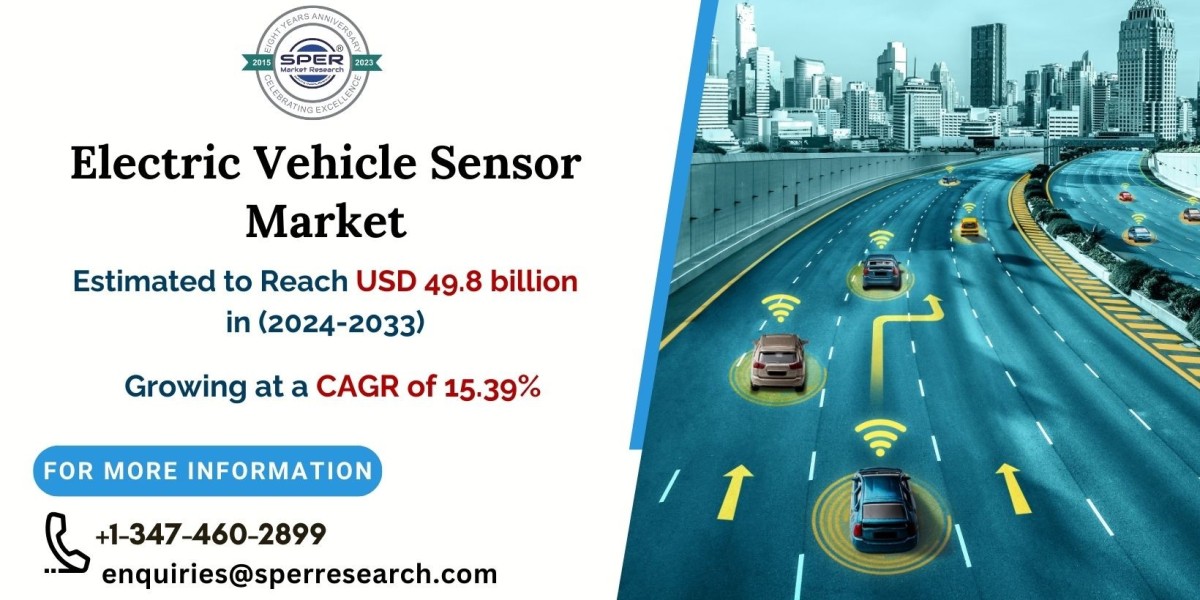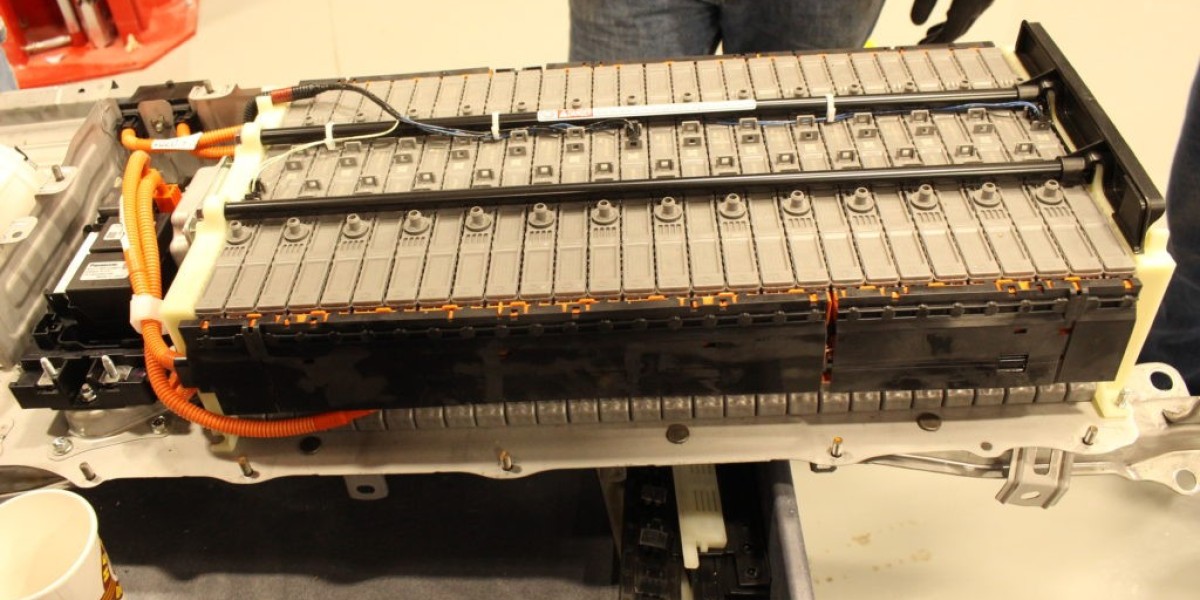Electric car sensors collect, measure, and transmit data that is used to analyse how the vehicles are operating. Sensors are electronic devices that, in reaction to external stimuli or events, generate an appropriate output. They respond to any physical input they detect, be it light, heat, motion, wetness, pressure, or any other kind of entity, by either transferring the data in an electronic format for further processing or presenting it on a display. These sensors use integrated circuit (IC) fabrication technology made on silicon wafers to monitor and control changes in an automobile's chemical, physical, and process elements.
According to SPER market research, ‘Electric Vehicle Sensor Market Size- By Product Type, By Vehicle Type, By Propulsion, By Sales Channel- Regional Outlook, Competitive Strategies and Segment Forecast to 2033’ state that the Global Electric Vehicle Sensor Market is predicted to reach 49.8 billion by 2033 with a CAGR of 15.39%.
To encourage the use of electric vehicles, governments everywhere are putting favourable legislation into place as well as offering incentives and subsidies. The need for electric car sensors is fueled by these programs, which incentivize manufacturers to invest in the development of electric vehicles. The trend toward electric vehicles are also being fueled by rising worries about environmental degradation and the demand for environmentally friendly transportation options. Sensors contribute to lower emissions and a cleaner environment by maximizing the economy and performance of electric vehicles. Furthermore, sensor usage in electric vehicles is being aided by advancements in sensor technology, including downsizing, increased durability, and enhanced accuracy. These developments make it possible for electric vehicles to have improved safety features, control, and monitoring.
When compared to typical internal combustion engine car sensors, the cost of electric vehicle sensors—especially advanced sensors with great accuracy and precision—remains comparatively expensive. Widespread adoption is hampered by this cost aspect, especially in regions where consumers are price sensitive. In addition, there are currently infrastructure and range constraints for electric vehicles. The growing market is impacted by consumer range concern and the requirement for regular recharge. Ongoing developments in infrastructure and battery technology should, nevertheless, be able to solve these issues.
Request For Free Sample Report @ https://www.sperresearch.com/report-store/electric-vehicle-sensor-market.aspx?sample=1
Impact of COVID-19 on Global Electric Vehicle Sensor Market
The Covid-19 pandemic had a number of effects on the electric vehicle sensor industry. The first phase of the market saw production and supply chain disruptions, but as more people learned about sustainable mobility options, the industry swiftly rebounded. Governments all throughout the world prioritized green recovery initiatives and offered financial aid and other incentives to promote the usage of electric vehicles. The epidemic accelerated the transition to electric vehicles, paving the way for the growth of the electric vehicle sensor market.
Electric Vehicle Sensor Market Key Players:
Geographically, Asia Pacific is anticipated to hold a dominant position in the market due to the presence of major electric vehicle manufacturers, government efforts, and a substantial customer base. Significant expansion is also being seen in North America and Europe as a result of rising infrastructure spending for electric vehicles and technology developments. Significant competitors in the market also include Denso Corporation, Amphenol Advanced Sensors, Analog Devices Inc., and other well-known companies.
Global Electric Vehicle Sensor Market Segmentation:
By Product Type: Based on the Product Type, Global Electric Vehicle Sensor Market is segmented as; Temperature Sensor, Motion Sensor, Pressure Sensor, Gas Sensor, Speed Sensor, Others.
By Vehicle Type: Based on the Vehicle Type, Global Electric Vehicle Sensor Market is segmented as; Passenger Cars, Commercial Vehicles, Others.
By Propulsion: Based on the Propulsion, Global Electric Vehicle Sensor Market is segmented as; Hybrid Electric Vehicles, Plug-In Hybrid Electric Vehicles, Battery Electric Vehicles, Others.
By Sales Channel: Based on the Sales Channel, Global Electric Vehicle Sensor Market is segmented as; OEM, Aftermarket, Others.
By Region: This research also includes data for North America, Asia-Pacific, Latin America, Middle East & Africa and Europe.
This study also encompasses various drivers and restraining factors of this market for the forecast period. Various growth opportunities are also discussed in the report.
For More Information, refer to below link:-
Electric Vehicle Sensor Market Future Outlook
Related Reports:
Follow Us –
LinkedIn | Instagram | Facebook | Twitter
Contact Us:
Sara Lopes, Business Consultant – U.S.A.
SPER Market Research
+1-347-460-2899








